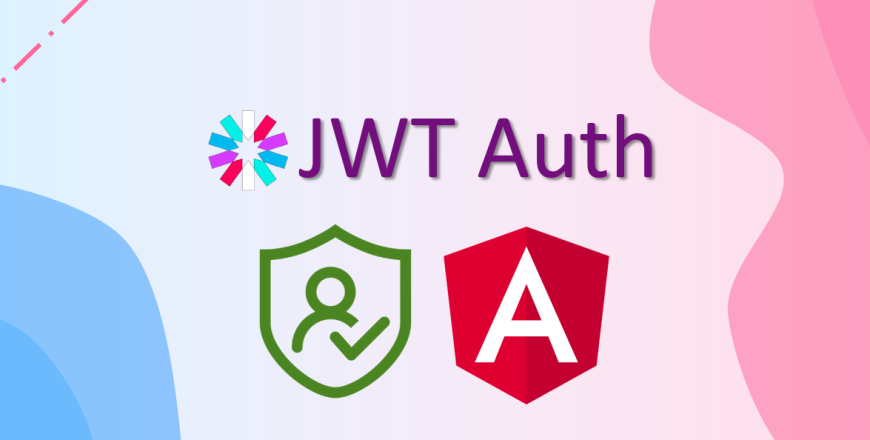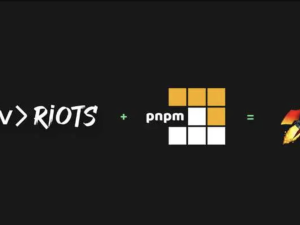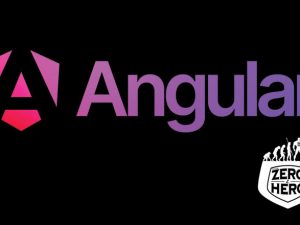Authentication Strategies in Angular
- Description
- Curriculum
- FAQ
- Reviews
- Grade
Authentication Strategies in Angular: From Basics to Enterprise Security is a comprehensive course designed for Angular developers who want to master the art of securing web applications—from simple login forms to complex, enterprise-grade identity management.
Starting with the fundamentals of authentication and authorization, this course guides you through implementing common strategies like token-based authentication (JWT), route guards, and role-based access control (RBAC). You’ll learn how to handle sessions securely, manage user state, and protect routes and components from unauthorized access.
As you progress, the course introduces more advanced topics such as OAuth 2.0, OpenID Connect, and integrating third-party identity providers like Auth0, Okta, or Firebase Authentication. You’ll also explore best practices for storing tokens, handling refresh tokens, and securing API communication.
By the end of the course, you’ll be equipped with the tools and techniques needed to build secure Angular applications that scale—from personal projects to large enterprise systems—with confidence and professional-level security standards.
-
1What is Authentication vs Authorization2h
Key concepts, identity vs access, session vs token-based
-
2Introduction to Auth Flows in SPAs2hThis lesson is locked because you haven't completed the previous one yet. Finish the previous lesson to unlock this one.
Cookie-based, token-based (JWT), OAuth2 flows for SPAs.
-
3Angular Project Setup2hThis lesson is locked because you haven't completed the previous one yet. Finish the previous lesson to unlock this one.
Configure Angular CLI app, routing, UI layout, and auth structure.
-
4Creating a Login Form2hThis lesson is locked because you haven't completed the previous one yet. Finish the previous lesson to unlock this one.
Reactive Forms, validation, user input handling.
-
5Making Login Requests to a Backend API1h 45mThis lesson is locked because you haven't completed the previous one yet. Finish the previous lesson to unlock this one.
HttpClient, request/response, token extraction.
-
6Storing Tokens Securely2hThis lesson is locked because you haven't completed the previous one yet. Finish the previous lesson to unlock this one.
LocalStorage vs SessionStorage vs memory; risks and recommendations.
-
7Auth Interceptor for Protected Requests2hThis lesson is locked because you haven't completed the previous one yet. Finish the previous lesson to unlock this one.
Automatically attach token to HTTP requests using Angular interceptors.
-
8Handling Token Expiry & Refresh Tokens2hThis lesson is locked because you haven't completed the previous one yet. Finish the previous lesson to unlock this one.
Implement silent refresh or manual re-login, refresh strategy patterns.
-
9Protecting Routes with AuthGuard2hThis lesson is locked because you haven't completed the previous one yet. Finish the previous lesson to unlock this one.
Redirect unauthorized users using CanActivate.
-
10Implementing Role-Based Guards2hThis lesson is locked because you haven't completed the previous one yet. Finish the previous lesson to unlock this one.
Use custom claims to manage role access (admin, user, etc.).
-
11Secure UI Elements with Role Logic2hThis lesson is locked because you haven't completed the previous one yet. Finish the previous lesson to unlock this one.
Show/hide elements with *ngIf, pipes, and structural directives.
-
12OAuth 2.0 & OpenID Connect Basics2hThis lesson is locked because you haven't completed the previous one yet. Finish the previous lesson to unlock this one.
Implicit flow vs PKCE flow, SPA best practices.
-
13Using Auth0 or Firebase for Social Login2hThis lesson is locked because you haven't completed the previous one yet. Finish the previous lesson to unlock this one.
Integrate with Google, Facebook, GitHub using Angular libraries
-
14Integrate with Google, Facebook, GitHub using Angular libraries2hThis lesson is locked because you haven't completed the previous one yet. Finish the previous lesson to unlock this one.
Use angular-oauth2-oidc to authenticate with enterprise identity providers
-
15Handling Redirects and Tokens in OAuth Flows2hThis lesson is locked because you haven't completed the previous one yet. Finish the previous lesson to unlock this one.
Configure redirect URIs, parse tokens, store identity info
-
16Using Identity Providers with PKCE Flow2hThis lesson is locked because you haven't completed the previous one yet. Finish the previous lesson to unlock this one.
Implement OAuth PKCE securely for public Angular clients.
-
17Logout Strategies & Token Revocation2hThis lesson is locked because you haven't completed the previous one yet. Finish the previous lesson to unlock this one.
Front-channel vs back-channel logout, session invalidation
-
18CSRF vs XSS in SPAs2hThis lesson is locked because you haven't completed the previous one yet. Finish the previous lesson to unlock this one.
Mitigation strategies when using cookies or localStorage.
-
19Auth Testing Strategies2hThis lesson is locked because you haven't completed the previous one yet. Finish the previous lesson to unlock this one.
Mocking token APIs, writing unit & E2E tests for auth features.
-
20Build a Secure Angular DashboardAssignmentThis lesson is locked because you haven't completed the previous one yet. Finish the previous lesson to unlock this one.

What You’ll Learn:
-
The difference between authentication and authorization
-
How to implement secure login and logout flows in Angular
-
Using JWTs for token-based authentication
-
Route protection using Angular guards
-
Role-based access control for fine-grained permissions
-
Integrating with identity providers (OAuth 2.0, OpenID Connect)
-
Security best practices for front-end applications
-
Hands-on examples with enterprise-ready authentication workflows
-
Intermediate understanding of Angular (services, routing, modules)
-
Basic knowledge of HTTP requests and observables
-
Familiarity with JWT (helpful, but not mandatory)
-
Angular developers (beginner to intermediate)
-
Developers building enterprise or production apps
-
Engineers integrating APIs or 3rd-party authentication providers
Archive
Working hours
| Monday | 9:30 am - 6.00 pm |
| Tuesday | 9:30 am - 6.00 pm |
| Wednesday | 9:30 am - 6.00 pm |
| Thursday | 9:30 am - 6.00 pm |
| Friday | 9:30 am - 5.00 pm |
| Saturday | Closed |
| Sunday | Closed |







